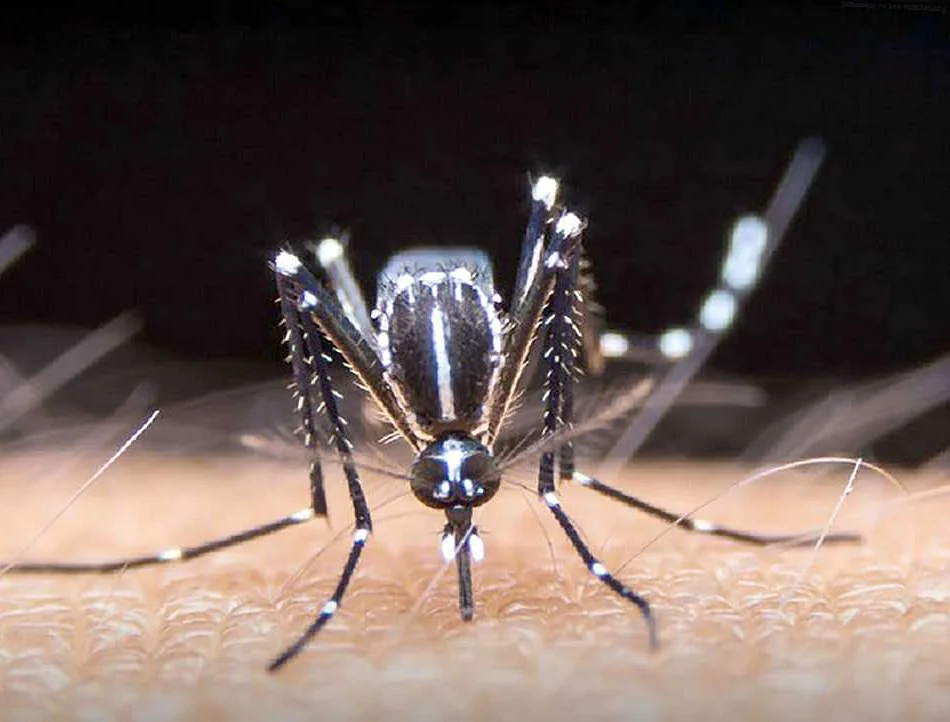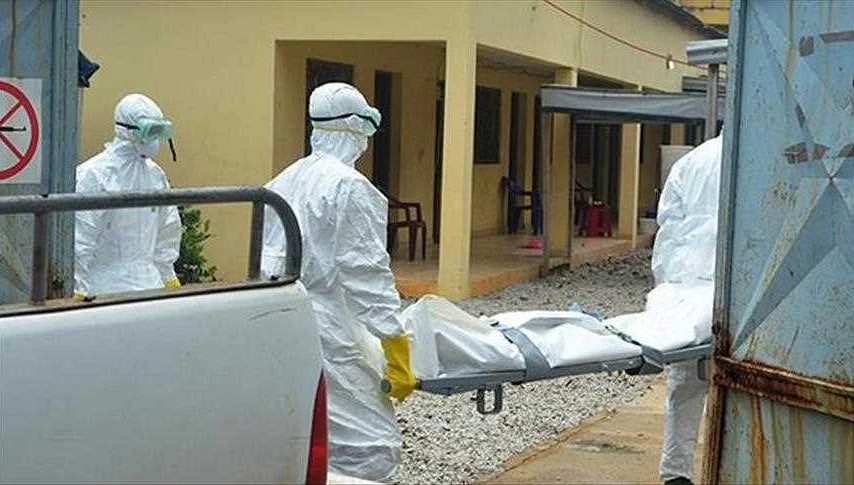In January, 4 St. Petersburg residents brought dengue fever from Thailand
Содержимое
In January, four residents of St. Petersburg returned from Thailand infected with dengue fever, highlighting the global spread of the disease. Learn more about the transmission and symptoms of dengue fever and how to protect yourself from it.
St. Petersburg, Russia – In a surprising turn of events, four residents of St. Petersburg have been diagnosed with dengue fever after returning from their winter vacation in Thailand. This tropical disease, which is transmitted through mosquito bites, has been a cause of concern as it is not endemic to Russia.
Dengue fever is a viral infection that is commonly found in tropical and subtropical regions. The symptoms include high fever, severe headache, joint and muscle pain, rash, and mild bleeding. Although it is usually not fatal, severe cases can lead to dengue hemorrhagic fever, which can be life-threatening.
The four residents, who have chosen to remain anonymous, had traveled to Thailand in search of a warm escape from the Russian winter. Little did they know that they would bring back more than just memories from their trip. Upon their return, they began experiencing symptoms and sought medical attention, leading to the diagnosis of dengue fever.
Health officials are now working diligently to prevent the spread of the disease within the city. Measures such as fogging to kill mosquitoes and raising awareness about the symptoms and preventive measures have been put in place. Residents are urged to use mosquito repellents, wear protective clothing, and regularly empty standing water to eliminate breeding grounds for mosquitoes.
As the number of cases continues to rise, it is crucial for residents to stay vigilant and take necessary precautions to prevent the spread of dengue fever. With warmer weather approaching, it is important to remember that this disease can be brought back from tropical destinations. By staying informed and taking appropriate measures, we can minimize the risk and protect ourselves and our community.
Four St. Petersburg Residents

In January, four residents of St. Petersburg, Russia, returned from their trip to Thailand and unknowingly brought back the dengue fever virus with them. Dengue fever is a mosquito-borne viral infection that causes flu-like symptoms such as high fever, severe headache, joint and muscle pain, and rash.
The four individuals, whose identities have not been disclosed, were diagnosed with dengue fever after experiencing symptoms upon their return. They sought medical attention and were promptly tested for the virus, confirming their diagnosis.
The importation of dengue fever cases from regions where the disease is endemic, such as Thailand, is not uncommon. The virus is primarily transmitted through the bite of infected mosquitoes, specifically Aedes mosquitoes. These mosquitoes are prevalent in tropical and subtropical regions, making them common carriers of the dengue fever virus.
St. Petersburg, a city located in the more temperate region of Russia, does not typically experience a high incidence of dengue fever. Therefore, the imported cases raise concerns about the potential spread of the virus in the local area.
Local health authorities have taken immediate measures to prevent the spread of the disease. They have intensified mosquito surveillance and control efforts, focusing on areas where the infected individuals reside. This includes mosquito breeding site elimination, larvicide application, and public awareness campaigns.
Additionally, health officials are advising the public to take precautions to avoid mosquito bites, such as using insect repellent, wearing protective clothing, and staying indoors during peak mosquito activity times. They are also urging individuals who display symptoms consistent with dengue fever to seek medical attention promptly.
| January 2022 | 4 |
By implementing these measures, health authorities hope to contain the imported cases and prevent further transmission of the dengue fever virus in St. Petersburg.
Import Dengue Fever
In January, four St. Petersburg residents imported dengue fever from Thailand. Dengue fever is a mosquito-borne viral disease that is commonly found in tropical and subtropical regions. It is transmitted to humans through the bite of infected female mosquitoes. The infected individuals traveled to Thailand and unfortunately contracted the disease during their stay.
Dengue fever is characterized by symptoms such as high fever, severe headache, joint and muscle pain, rash, and mild bleeding. It can be a severe and potentially fatal illness, especially in individuals with weakened immune systems.
Upon returning to St. Petersburg, the infected individuals sought medical attention and were diagnosed with dengue fever. They were advised to rest, drink plenty of fluids, and take pain relievers to alleviate their symptoms. It is important for individuals who have recently traveled to dengue-endemic regions to seek medical help if they experience any symptoms associated with the disease.
The importation of dengue fever highlights the importance of public health measures to prevent the spread of mosquito-borne diseases. Mosquito control efforts, such as eliminating standing water and using insect repellents, can help reduce the risk of transmission. It is also crucial for individuals to protect themselves from mosquito bites by wearing long sleeves, using mosquito nets, and staying indoors during peak mosquito activity.
Public health authorities in St. Petersburg are working to identify and monitor any potential local cases of dengue fever to prevent further transmission. They are implementing measures to control mosquito populations and educate the public about the disease and preventive measures. Early detection and prompt treatment of dengue fever cases are essential to prevent outbreaks and protect the community.
From Thailand
In January, four residents of St. Petersburg imported dengue fever from Thailand. This is a concerning development, as dengue fever is not native to Russia and can only be acquired through travel to regions where the disease is endemic.
Thailand is a popular tourist destination for Russians, with many people visiting the country for its beautiful beaches and cultural attractions. However, it is important for travelers to be aware of the health risks associated with travel to tropical regions like Thailand.
Dengue fever is a viral infection transmitted by mosquitoes. It can cause symptoms such as high fever, severe headache, joint and muscle pain, and rash. In severe cases, dengue fever can lead to dengue hemorrhagic fever, which can be fatal.
To prevent the spread of dengue fever, it is important for travelers to take precautions such as using insect repellent, wearing protective clothing, and avoiding areas with a high mosquito population. It is also important to seek medical attention if you develop symptoms of dengue fever after returning from a trip to a tropical region.
The cases of dengue fever imported from Thailand highlight the importance of being vigilant about one’s health when traveling, and the need for public health measures to prevent the importation and spread of infectious diseases.
Overall, it is essential for travelers to be informed about the health risks associated with their destination and to take appropriate measures to protect themselves and others from diseases like dengue fever.
In January
During the month of January, four residents of St. Petersburg returned from their trip to Thailand, unknowingly bringing back with them the dengue fever virus. This highly infectious disease is transmitted through the bite of infected mosquitoes and can cause severe symptoms such as high fever, headache, joint and muscle pain, and rash.
Unfortunately, upon their return, these individuals started experiencing symptoms associated with dengue fever. They sought medical attention and were diagnosed with the disease.
The local health authorities were promptly notified about these cases, and efforts were initiated to prevent the further spread of the virus. Health officials advised the public to be aware of the symptoms of dengue fever and take necessary precautions to avoid mosquito bites. Additionally, an extensive mosquito control program was implemented to reduce the mosquito population in the affected areas.
This incident serves as a reminder of the importance of taking necessary precautions when traveling to regions where infectious diseases are prevalent. It is crucial for individuals to be aware of the risks associated with certain destinations and to take appropriate measures to protect themselves from mosquito-borne illnesses.
Health Authorities Confirm Cases

Health authorities in St. Petersburg have confirmed that there have been four cases of dengue fever imported from Thailand in January. This announcement comes after the individuals sought medical attention and tested positive for the disease.
The health authorities urge residents to be cautious when traveling to areas where dengue fever is prevalent and to take necessary precautions to avoid mosquito bites. Dengue fever is transmitted by the Aedes mosquito, which is commonly found in tropical and subtropical regions.
Dengue fever is a viral infection that causes flu-like symptoms such as high fever, severe headache, joint and muscle pain, and rash. In severe cases, it can lead to dengue hemorrhagic fever, which can be life-threatening. There is currently no specific treatment for dengue fever, and prevention is the key.
Health authorities are working closely with the infected individuals to identify any other potential cases and to prevent the spread of the disease. They are also conducting public awareness campaigns to educate the public about the symptoms and prevention of dengue fever.
If you have recently traveled to a dengue-endemic area and are experiencing flu-like symptoms, it is important to seek medical attention immediately to get tested for dengue fever. Early detection and prompt treatment can help prevent complications and further transmission of the disease.
Remember:
Prevention is better than cure!